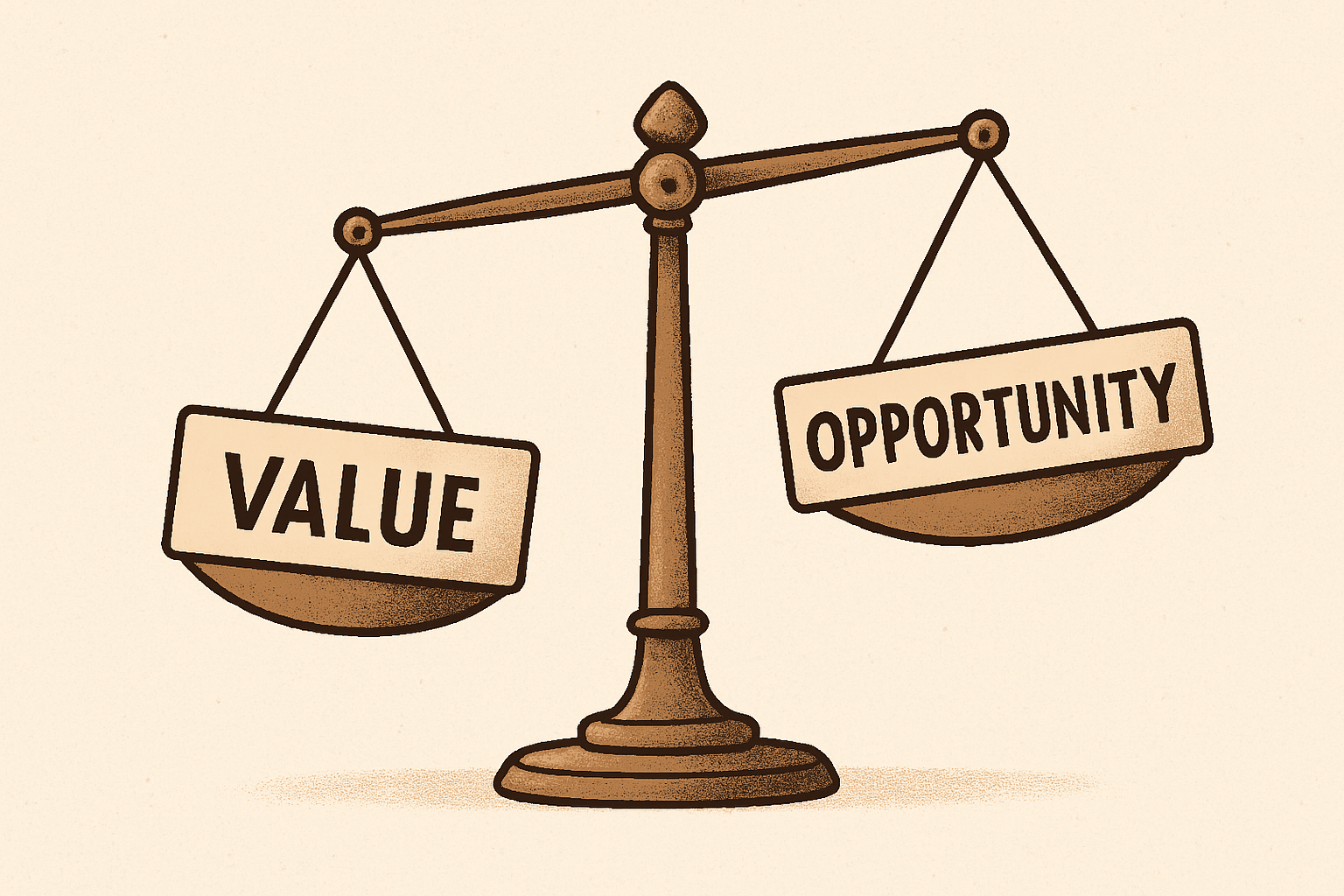Guillaume Jouvencel:
We hear a lot about finance, banking and consulting in finance but with treasury it’s a bit more niche.
So, how do you go about starting a career in treasury as a young graduate from Business School?
Mike Richards:
I think the first way is to try and find out about treasury. When I started in treasury recruitment 20 plus years ago and I wanted to learn about treasury and the people I was recruiting, I used to have to go out and have coffees with Treasurers and say “right, tell me what you do?”.
The first one I met, I said, “Can you tell me about cash management?”
And they tell me about that. And then you meet the next Treasurer and I go, “Oh, can you tell me about FX?” and so on.
You then start to build up your knowledge, very accidently almost. And that’s why a lot of treasury professionals find themselves accidentally falling into treasury too.
Now it is improving. And actually, I spoke to a group of North American Treasurers just recently, and we were talking very much about how they get treasury folks into treasury.
One of the things I suggested to a lot of them, is to follow in the footsteps of a wonderful lady called Séverine Le Blévennec who used to be at Honeywell and is now at Aliaxis.
And I joked with you guys before the show that she’s dreadful. She drives me mad!
Why?
Because she does an amazing job for junior treasury professionals. What she does is, she goes out and helps out and does a sort of outreach program and volunteers at the local university. And by doing that she finds a lot of great junior treasury professionals.
She gets to lecture, not all the time as she’s a very busy Treasurer, but when she does, she can then cherry pick some of those guys and bring some of them in on internships etc. Then she gets other members of her team to go and integrate with them and they get to do and replace me in a way. So, they recruit people for free. It really is a great way to get people in.
The follow on from that as well, and I’m hearing it more on business courses where people are doing a one-year placement for example or a sandwich course, if you like. In the UK, for instance, I know that FedEx do an extremely good one and they partnered with The University of Surrey and the University of Sheffield, and Birmingham I think it is.
Also, Coates have done that as well, an ex-plc. And what they do is years one and two they do the degree and then they do a one-year placement as a Treasury Assistant, if you like. And sometimes they do a bit more in the company.
Then they go back and finish their final year. And honestly, we recently placed someone that had gone through that, and they jumped straight into a job in like 7 seconds because they are presented with a fully trained Treasury Assistant that knows how to work the systems, about cash management and everything else and wasn’t worried about treasury.
So that’s a great way of doing it.
What else can you do? Well, you can outreach and volunteer and train from within as well. So make sure you as a Group Treasurer or Deputy Treasurer are trying to do this.
And there’s more rotation programs now. Try and go to whoever organized them and say “oh, by the way we’d like to train someone or have them on rotation for three months or six months, if possible. And then they get this great view of treasury. They get to move into other areas of the company, and they go out and spread the word of treasury, which is as you know exactly what we are here for and why we do the podcast and various other things for you guys.
Guillaume Jouvencel:
So you mentioned more from the aspect of a Group Treasurer perspective on how you get young talent. But what about the other way around, i.e as a young graduate you mentioned that it can be accidental.
How do you intentionally go into treasury, if you are curious and interested and want to learn more about it?
And I know there are some students out there that are targeted to treasury, so if they want to get to know treasury and do internships and one-year placements as a Treasury Assistant while still doing their studies etc – are there things that exist already?
Mike Richards:
I think the first step is to listen to Corporate Treasury 101 and Treasury Career Corner podcast….they are amazing podcasts!
That was one of the reasons I teamed up with you guys, because I was like, wow, this is brilliant. This is exactly what people want and that’s what we need to get. Get you guys out there spreading the good word of treasury and actually saying, this is why treasury is so engaging, go work within it.
I think also there’s so many education programs out there now.
I have seen some very highly priced ‘Introduction to Treasury’ courses. But there are a number of other treasury qualifications too. They do a really good one in the Netherlands, and there’s another one in Luxembourg, which is very good.
So, it’s about getting interested in treasury. And there’s so many other things now. When I typed in treasury 15 years ago, it was all about the government etc. It’s not just about that now it’s about liquidity cash management, FX global etc. But by just doing this and listening to things like our Corporate Treasury 101 and Treasury Career Corner podcasts and going to our website, you can see lots of information for junior guys trying to get into it.
Hussam Ali:
What are those typical degrees you see from people entering into treasury?
Like I said, there’s no specific undergraduate or graduate degree in treasury. The first one off the top of my head would be a finance degree or a business degree.
Are they the bulk of the applicants that typically go into treasury? Or do you also get people going into treasury as graduates from other backgrounds?
Mike Richards:
You do.
I think there’s a predominance of people coming from having done business degrees or degrees in economics or accountancy though. And you get a lot of those because of their way of thinking. You don’t tend to get the graduates coming from say philosophy and courses like that.
And I say that because recently we placed someone, and they’d had a philosophy degree and they realized that it wasn’t for them. They didn’t like the idea that there was no answer. It’s like how many philosophers does it take to change a light bulb?
Well, it depends if the light bulb wants to change or does the light bulb actually exist?!
It’s that stuff. They said, actually they didn’t enjoy that sort of thing.
I would say, I think anyone can get into treasury if you have a passion for it. When we have adverts, it sometimes says a accountancy qualification or degree in accountancy, business or finance preferred. And a lot of clients say, ‘highly desirable’ or ‘essential’.
And I’m like, “what’s your degree in?”
“It’s in chemistry”. OK, so it’s not actually in this?
So, I think that’s one of the things that the company’s recruiting and the clients recruiting need to think about.
HA:
If we can step out then from Finance graduates and accounting graduates, and you’re saying really, it’s open to pretty much anyone with that kind of mindset.
At the student/graduate level what are those hard or soft skills that are typically required to go into something like treasury?
And likewise what are the soft skills that make a good treasury candidate regardless of background or degree?
MR:
If you go to a thing called the treasuryskillswheel.com which we actually created as I got asked this a number of years ago for the Chicago Treasurers Association. So, we went away and analysed the first 70 podcasts that we did and created this treasury skills wheel to highlight the skills needed and to answer the question directly.
Core skills that we found were:
- Technical expertise
- Qualifications
- Diversity of experience
- Project management
Those are the things that you start to build. And someone said “well hang on I’m a graduate I haven’t got any project management experience, or I haven’t done this yet”
“Okay. Did you run the student union? Did you organize these events? Did you do all of this?”
“Yeah, I did.”
Okay. So, as well as your qualification, you’re pretty good on project management then.
On the softer skill areas we found:
- Enthusiasm
- Personal drive
- Relationship building
- Communication
- Propensity to learn
- Strategic thinking
- Risk tolerance
- Change resilience
And all of those were things that were mentioned by I think 75 Global Treasurers and it was distilled down from what they were saying. So, it’s not me, it was their words. And what they had said made them successful.
And now we are at 200 plus podcast guests, to be honest, it hasn’t really changed. When you speak to a lot of those Treasurers, you can sort of plot them on each of those graphs in the two concentric circles.
And the Global Treasurers tend to be in the outer circle of each of those, because that’s the way you get to the top. And the ones that aren’t very good are those that need to work on things like their personal communication skills which can really propel you as well.
GJ:
Let’s say you check most of the boxes for both hard and soft skills.
What then are the industries you can look at when it comes to treasury?
So obviously we talk about corporate treasury, so we think of the big corporations but what are the other options?
For instance, in banking are treasury skills or treasury positions related somehow? Also consulting as well, what can you tell us about those possibilities and opportunities for a young graduate who touches upon treasury in their daily job, but who are not fixed on exactly one industry to go to.
MR:
So, let’s cover firstly, corporate treasury. You can go into any corporate and it doesn’t matter what widget it is or whether it’s FMCG or whether it is heavy industry – there are differences between those i.e they might be a debt-laden or a cash-rich company.
But treasury is treasury.
But it is different as well. And I often say that Treasurers in each of those tend to have different skills that they draw from their toolkit in a different way.
I think also banking. As you say, this can be very good and a good way for a lot of treasury professionals to start their careers. However, if they start to go on a bit further in their banking careers, they become more and more specialised. Then at a later stage, they sometimes come to me and say, “oh, I want to get out banking now and I’d like to go into corporate treasury because I do corporate treasury sales”
Now, actually, I’m going to get my own back on you guys a bit here as you are in consulting.
So, you tell me, as a junior treasury professional why should they go into consulting?
Why is consulting great? Surely you spend your life out of a suitcase and that’s horrible?
GJ:
So obviously there are quite some things to take into account here.
What attracted me in the first place? That’s interesting because that’s something we wanted to touch upon a bit later, but let’s tackle it now. My feel about consulting in treasury is that treasury is super interesting obviously, but in consulting, you get to do the transformation projects.
You get to do the, let’s say expensive stuff for a company that it’s hard to do on its own, so you hire consultants. So you’ll a little bit less into the day-to-day treasury tasks and the missions, and more into the, okay, we need to implement the TMS (treasury management system).
And we’re like, okay, we need to change our treasury management system. How do we do that? How many people do we need?
Okay, so we definitely need to hire some consultants or even implement one because we do not have one so far.
Same for the banking landscape. We are looking at transforming our banking landscape and rationalizing around the world, centralizing our cash etc, and this is something we need to have consultants for.
And it’s interesting that you mentioned project management. I didn’t expect it to be a skill in a pure treasury function, but that’s really the aspect that I love. Being into the project management of some transformation, and looking towards the future, that’s what’s attractive in treasury consulting.
Stay tuned for our next graduate treasury Q&A snippet or you can listen to the full podcast episode here: Feature Series: Starting Out in Corporate Treasury[episode id=”221″]



